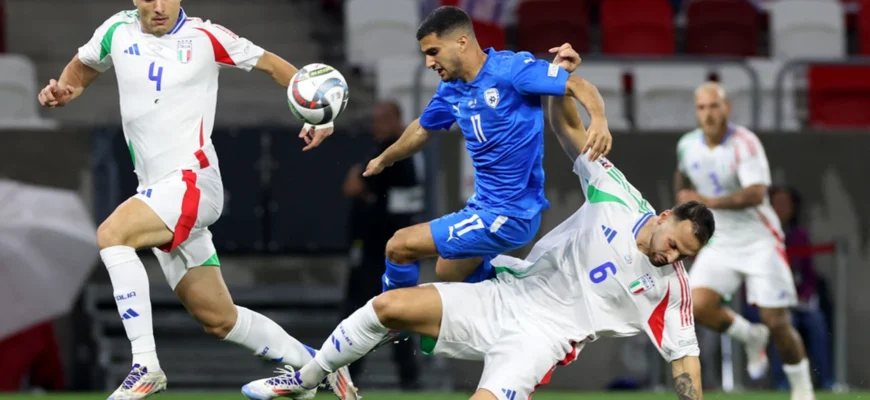In Udine, Italy, a World Cup qualifier between the national teams of Italy and Israel is set to unfold, but the pre-match buzz isn`t dominated by tactical analyses or player rivalries. Instead, an unprecedented level of security, whispers of international intelligence agencies, and a pervasive sense of geopolitical tension have taken center stage, transforming a simple football match into a meticulously orchestrated security operation.
The Unseen Opponent: Maximum Security Protocols
Forget the usual pre-match jitters; Udine is on what authorities term “maximum alert.” This isn`t merely about managing enthusiastic fans; it`s a comprehensive effort to preempt potential disruptions stemming from the volatile geopolitical landscape, particularly in the wake of a recent ceasefire in Gaza. Local authorities, led by Udine Prefect Domenico Lione, are leaving nothing to chance, anticipating that a planned street demonstration could serve as a magnet for more disruptive elements.
The measures being implemented are a stark reminder that this isn`t just a game. Commercial establishments in the vicinity of the Stadio Friuli will face restrictions, with sales of products in glass, ceramic, or can containers strictly prohibited. Even outdoor seating areas, typically a staple of European city life, must be removed – a preventative measure against improvised projectiles. Furthermore, the security perimeter around the stadium extends an astonishing kilometer from the gates, where anti-terrorism devices will be employed for reinforced screenings, detecting everything from weapons to explosives. The message is clear: the safety of attendees, and the integrity of the event, are paramount, even if it means transforming a festive sporting occasion into a fortress.
The Mossad Mystique: Official Denials, Persistent Reports
Adding a layer of international intrigue to an already tense situation is the persistent controversy surrounding the security detail for the Israeli team. While the Italian Interior Ministry has issued clear denials, stating it has not authorized the Mossad, Israel`s national intelligence agency, to escort the visiting squad, reputable sources like Gazzetta continue to report otherwise. This creates a fascinating dichotomy: a formal governmental denial clashing with widely circulated claims of covert, high-level protection.
The very idea of an international intelligence agency operating within another sovereign nation`s borders, especially without official acknowledgment, certainly elevates the drama. The Israeli team`s itinerary further fuels speculation; they are reportedly flying to a “secret location” after their preceding match against Norway. One can`t help but wonder if this secrecy is standard protocol for high-profile teams, or if it`s another thread in the intricate tapestry of a security operation where some details are best left unconfirmed, adding a certain cinematic quality to what should merely be a journey to a football fixture.
The Price of Peace: A Stadium Half-Empty?
Beyond the official pronouncements and security grids, the most tangible impact of this heightened atmosphere is on the very essence of the event: the fans. The Stadio Friuli boasts a capacity of 25,000, a respectable arena for a World Cup qualifier. Yet, reports indicate that fewer than 5,000 tickets have been sold. This isn`t a reflection of waning interest in football, nor a slight against either team`s prowess. It`s a clear signal that the public, understandably, is hesitant. When the specter of geopolitical tension overshadows the spectacle of sport, many choose to watch from the comfort and safety of their homes.
It`s a bittersweet irony when the “beautiful game,” meant to unite and inspire, finds itself overshadowed by concerns of division and danger. The empty seats will serve as a quiet, yet profound, testament to the reality that some conflicts transcend the boundaries of the pitch, turning what should be a celebration of athletic competition into a stark reminder of a complex world. For the players and those few brave fans in attendance, the match in Udine will be more than just a fight for World Cup points; it will be a display of resilience, playing on amidst a backdrop of unseen forces and unparalleled vigilance.








